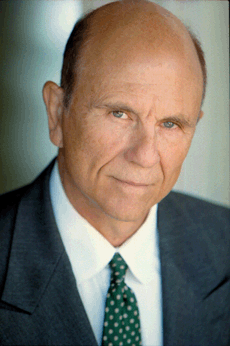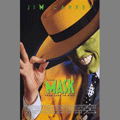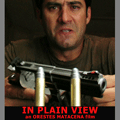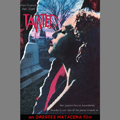
Orestes first ventured into films at the age of six when he worked as an actor in "The Life of Billy the Kid," with a cast comprised only of children. The movie was shot at the Mercedes Sugar Mill in Matanzas, Cuba, where he lived with his parents.
Orestes has worked as an actor with high profile directors on films, television and commercials.
As a film actor Orestes has played the antagonist in many Hollywood Studio films such as "The Mask" starring Jim Carrey and "Diggstown" with James Woods and Lou Gossett Jr. just to name a couple.
In the advertising world, Orestes has worked in 37 commercials so far, nine of them directed by Marcus Nispel. The New York Museum of Modern Art has made Mr. Nispel's body of work part of its Permanent Collection. Thanks to Mr. Nispel's artistic endeavor, Orestes is part of that wonderful collection.
Orestes is well known for NOT taking "no" for an answer. He raised the capital to produce and direct a feature movie from a screenplay he wrote called "Tainted." However, he decided that, rather than consuming his time finding investors to bankroll his movies, he would finance them himself and use that time to sharpen his creative vision.
Orestes is, as the French would say, a real film auteur. His body of work to date as a filmmaker includes "In Plain View," "Sex Guns Money @ 20," "Cuba Libre," "Fatal Encounter," "Tainted," "James Gilbert Albright and the Haunted Studio," "The Two Faces of Ruben Rabasa," "Aguabella" and "Theater in the Parks." He has written, directed, produced and edited almost all of his work.
In 1968, Orestes wrote his first play, "The Gym." Since then, he expanded his versatility as a playwright and screenwriter with three plays and more than twenty five screenplays and various television concepts to his credit to date. His writing encompasses a variety of styles: thrillers, dramas, comedies, horror and action-adventures.
"Bitter Sugar," a movie Orestes wrote for Hollywood director Leon Ichaso about a young couple living under the Cuban Communist Tyranny, opened to excellent reviews and was shown to the Human Rights Commission in Geneva, Switzerland and to the United States Congress. For Orestes this was a spiritual and rewarding experience.
Orestes was born in Cuba to Italian immigrants and grew up on a sugar mill plantation where the country and all kinds of animals, especially horses, were a large part of his life. He describes himself as a "third world country boy." But his business partner, Orna Rachovitsky, says he is a "hillbilly in an Armani suit."








As a teenager Orestes was part of the resistance fighting to overthrow the Cuban tyrant and billionaire (according to Fortune Magazine, May 5, 2006) Fidel Castro and his despotic Communist Regime, in order to establish freedom and a real Democracy on the island.
Orestes escaped from Cuba on an airplane to Mexico before immigrating legally to the United States and becoming an American Citizen without a single penny in his pocket, literally, and knowing no one in Mexico.
After living in Mexico illegally for exactly ninety days, Orestes arrived in the United States, October 30, 1964, literally without a cent in his pocket and without speaking the English language. He settled in Titusville, Florida and worked nine hours a day, six days a week washing dishes at a restaurant called the "Ranch House" at a weekly pay of thirty dollars.
Soon after, Orestes became a short order cook and worked on Cocoa Beach before moving to Miami. In Miami he worked as a cook, a clothing salesman and a car salesman. The first month as a car salesman he lived sparsely, eating only one apple and half a slice of white toast every three days until he finally sold his first car one month later. That special day he had a feast.
A dreamer at heart with an entrepreneurial mindset, Orestes decided it was time to start up a playhouse. His first theater was in the living room of his Miami apartment that he shared with his girlfriend Phyllis Baldwin, a North Carolina bombshell. Then, he rented an office space and founded "Theater 66" with Cuban actor/director, Miguel Ponce. They produced ten plays together at that theater.
Two years later, 1968, Orestes moved to New York. With only a few dollars in his pocket and knowing no one, he had no other choice but to sleep at the Port Authority bus station for a few days. By the fourth month of his arrival, he raised $25,000 and was producing and acting in his first Off-Broadway play called "The Grab Bag."
In 1969, Orestes and Miguel founded "The New York Theater of the Americas," where they produced more than thirty original plays. Orestes acted in many of the productions, playing a variety of roles ranging from a scruffy dog to an Italian Count, and directed his first play. Miguel's role was primarily as a director.
Not only did Orestes work in his own playhouse, but he was hired as an actor in many prestigious New York theater companies such as "Cafe La Mamma," "Stage 73," "Dume," "The Henry Street Playhouse," "INTAR" and "The Astor Place Theater."
Years later, in 1975, Orestes founded "The New York Cuban Cultural Center" along with Ruben Rabasa, Ivan Acosta and Clara Hernandez, where they produced twelve plays, recitals, poetry nights, art exhibitions and political debates about the Cuban Communist tyrannical situation oppressing the people living on that beautiful island. Thanks to Ivan, the Center is still part of the New York scene.
Copyright © 2015 - All Rights Reserved - www.swastikathemovie.com
Site Design by Orna Rachovitsky - Original Design by OS Templates